Want cleaner links that look good, track clicks, and boost engagement?
A URL shortener does all that, and more.
Whether you’re a digital marketer, content creator, or small business owner, short links can give your strategy a major upgrade.
In this post, we’ll break down the top 10 real-world benefits of using a URL shortener. You’ll learn how it works, why it matters, and how tools like Linko can save time and increase conversions.
What Is a URL Shortener and How Does It Work?
Definition of URL Shortener
A URL shortener is a tool that converts a long web address into a shorter, more compact version.
The shortened link still points to the original URL, but in a way that’s easier to share, track, and manage.
Think of it like giving a giant delivery truck (your full URL) a motorbike (the short link) to zip through social media, email campaigns, or SMS messages.
It’s the same destination, just faster and more agile.
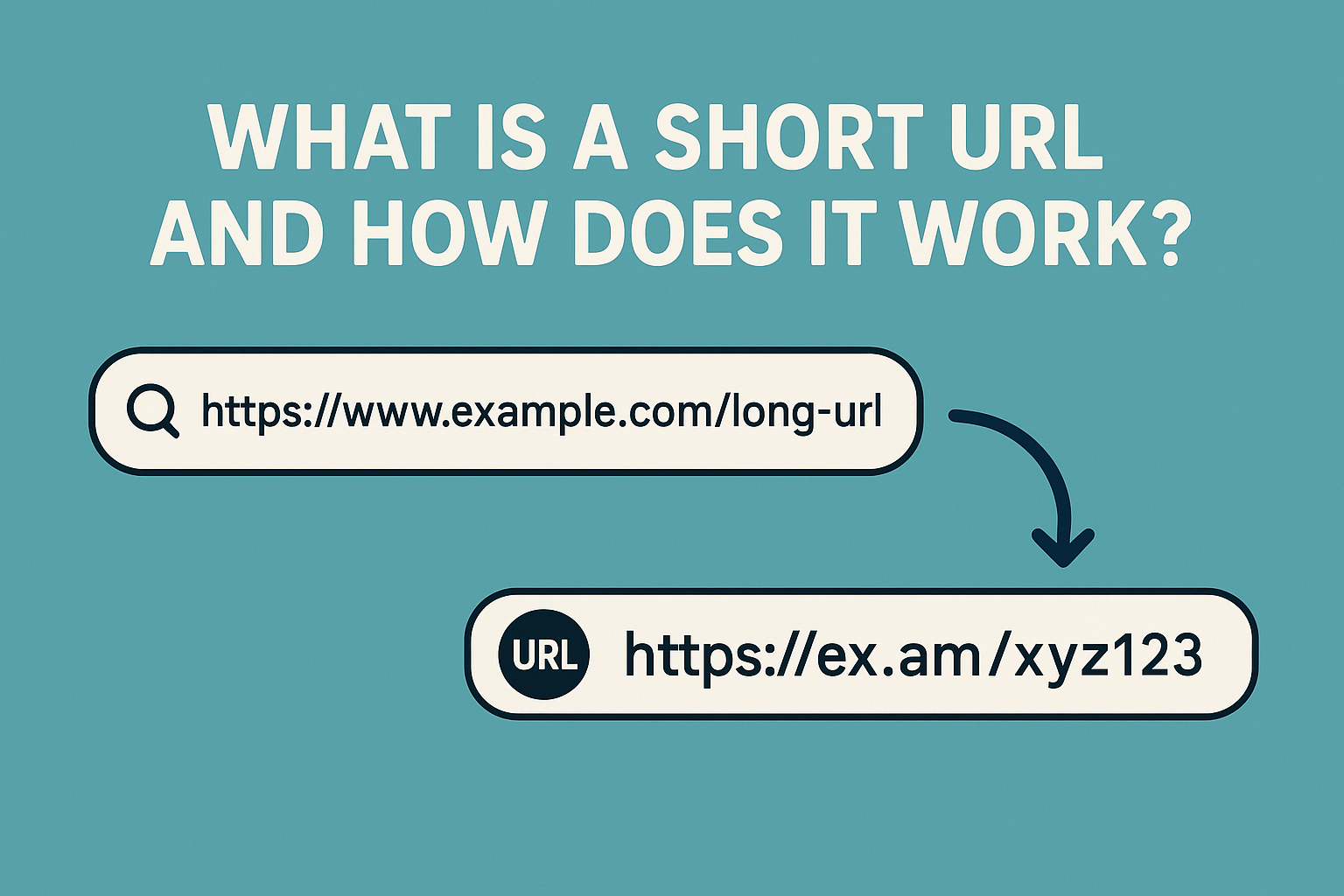
You’ve probably seen short links like bit.ly/xyz123 or allmylink.me/offer.
These are easy to type, clean in appearance, and take up less space, which is especially useful on platforms with character limits like Twitter or WhatsApp.
How Short Links Are Generated
Most URL shorteners work like this:
- You paste your long URL into the shortener tool.
- The tool creates a unique short slug, often random (e.g.,
/abc123) or customized (e.g.,/blackfriday-deal). - That short URL redirects anyone who clicks it back to your full original link.

Some platforms like Linko even let you:
- Add UTM parameters to track where the traffic comes from.
- Use custom domains (like
go.yourbrand.com) for branded links. - Generate QR codes and organize links into channels or campaigns.
The process is fast, easy, and doesn’t change the content or performance of your destination page.
Why Use a URL Shortener? Top 10 Real Benefits
Let’s break down the real reasons why millions of marketers, creators, and entrepreneurs use short links in 2025.
1. Makes Long URLs Short and Shareable
Let’s be honest, no one wants to click a messy URL full of tracking codes and numbers.
Long URLs look cluttered, take up space, and often get cut off in emails or DMs. Short links are clean, easy to read, and more clickable.
Instead of this:https://example.com/product-category/new-arrivals/shoes/men-size-10/?utm_source=facebook&utm_campaign=spring_sale
You get this:onlylinks.cc/spring-shoes
Short links are:
- Easier to type manually
- Less likely to break when shared
- More professional in appearance
Great for social media posts, Instagram bios, SMS, and even printed marketing.
2. Increases Click-Through Rates (CTR)
Short URLs tend to get more clicks. Why? Because they look less spammy and more trustworthy, especially when branded.
According to several studies, branded links can increase CTR by up to 34% compared to generic links.
Example:
- Generic:
bit.ly/x9TfYz - Branded:
allmylink.me/summer-sale
People are more likely to click when they know where a link leads. So, using a URL shortener with branding options directly affects your campaign’s performance.
3. Improves User Experience on All Devices
In mobile-first marketing, how a link behaves across devices matters. Long links often:
- Wrap poorly in texts
- Break in apps
- Get misread or clipped
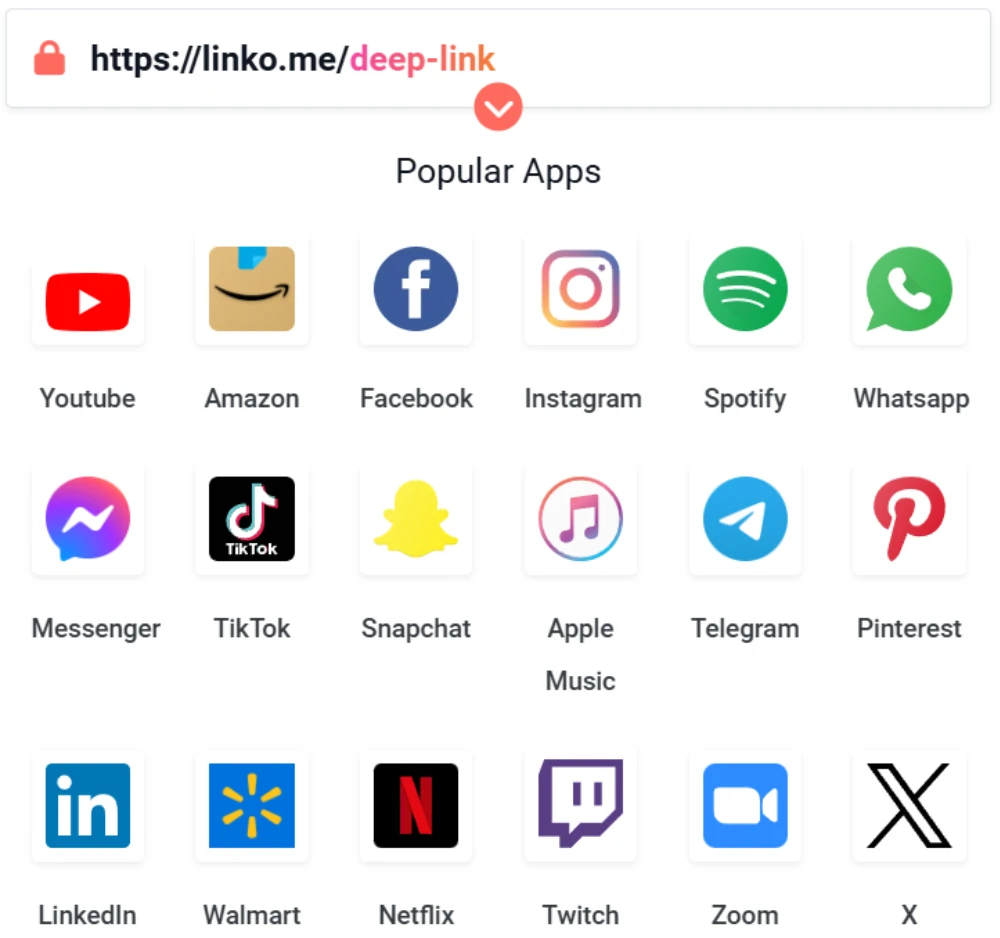
Short URLs are mobile-friendly. They work well in:
- SMS and WhatsApp campaigns
- Push notifications
- In-app banners or pop-ups
When your links work consistently across iPhones, Androids, tablets, and desktops, users have a smoother experience, and you get more conversions.
4. Tracks Clicks and User Behavior in Real-Time
Here’s where short links become really useful for marketers.
URL shorteners like Linko offer built-in click tracking and analytics. That means every time someone clicks your short link, you get data like:
- Total clicks
- Click time and date
- Device and browser
- Geographic location
- Referrer source
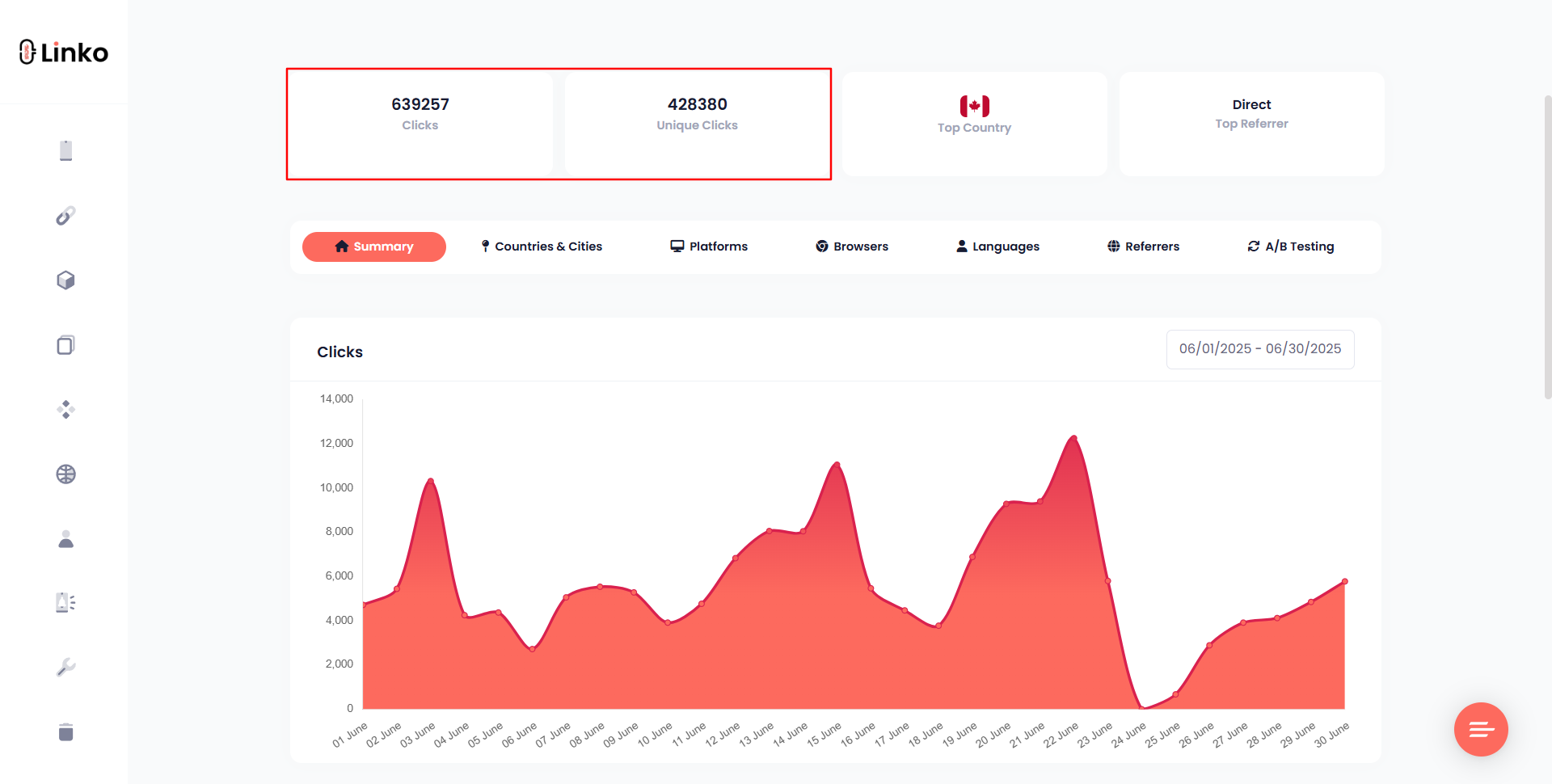
No need to guess which link is working. You can A/B test your campaigns, analyze traffic sources, and double down on what brings results.
5. Helps with UTM Parameters and Campaign Tracking
If you’re running multiple ads or sharing the same landing page across different platforms, UTM tracking is your best friend.
A URL shortener makes this much simpler.
Example:
Your long link with UTM might be:https://example.com/signup?utm_source=twitter&utm_medium=social&utm_campaign=launch
Using a URL shortener, you can turn this into:onlylinks.cc/twitter-signup
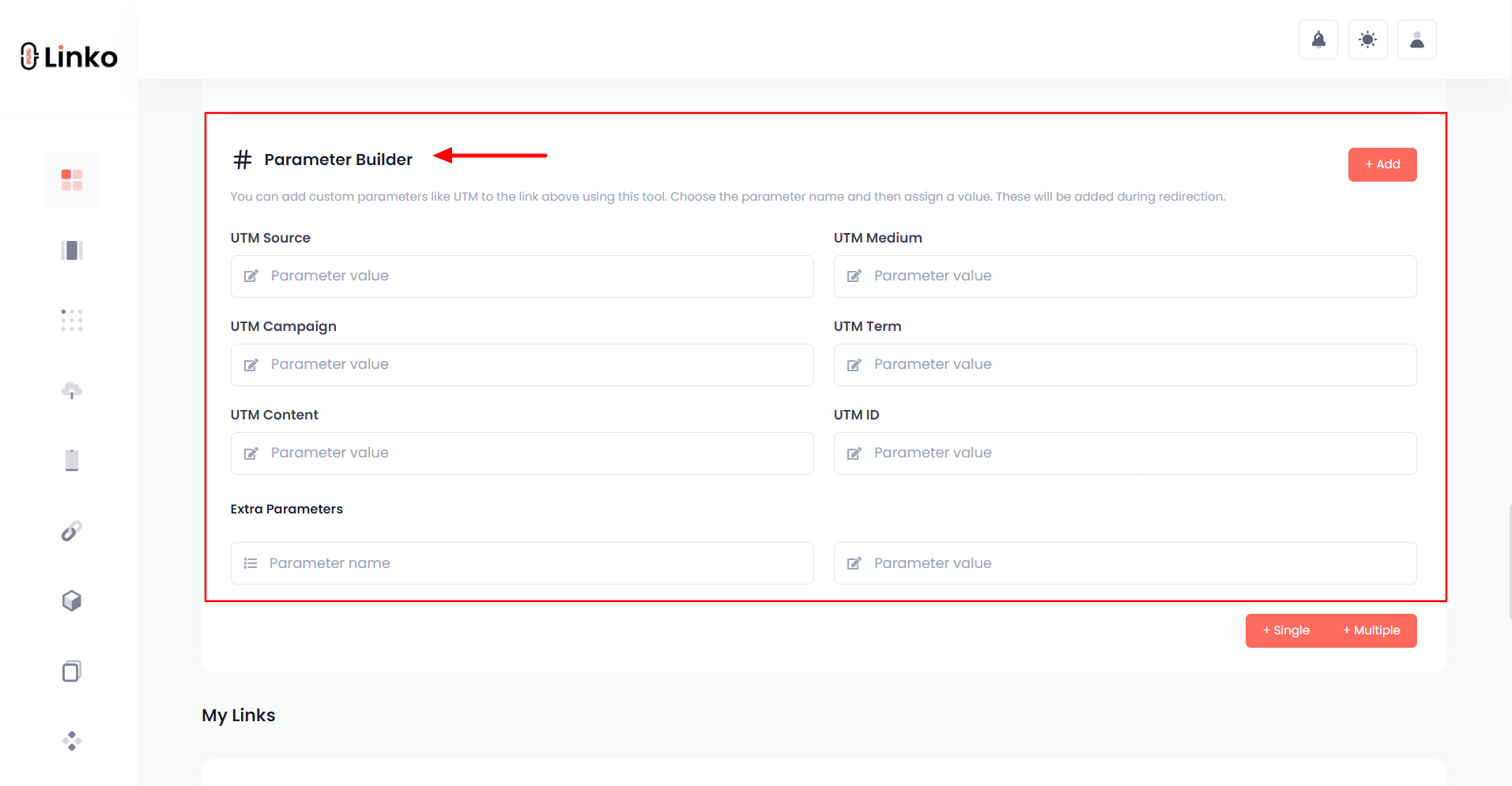
You still get the same UTM tracking in Google Analytics, but with a cleaner and more clickable link. It also helps you quickly see which platform or post drove the traffic.
6. Boosts Brand Trust with Custom Branded Links
Would you click on bit.ly/abc123 or yourbrand.co/offer?
Branded URLs improve trust.
They show the visitor that the link is official, verified, and directly from your business.
With platforms like Linko, you can:
- Add your own domain (e.g.,
go.yourcompany.com) - Customize the slug (e.g.,
/vip-event) - Match the link to the message or offer
Custom links work great in:
- Influencer bios
- Sales pages
- Printed materials (flyers, posters, packaging)
And best of all, short link with branded domain are memorable, perfect for verbal sharing, interviews, or podcasts.
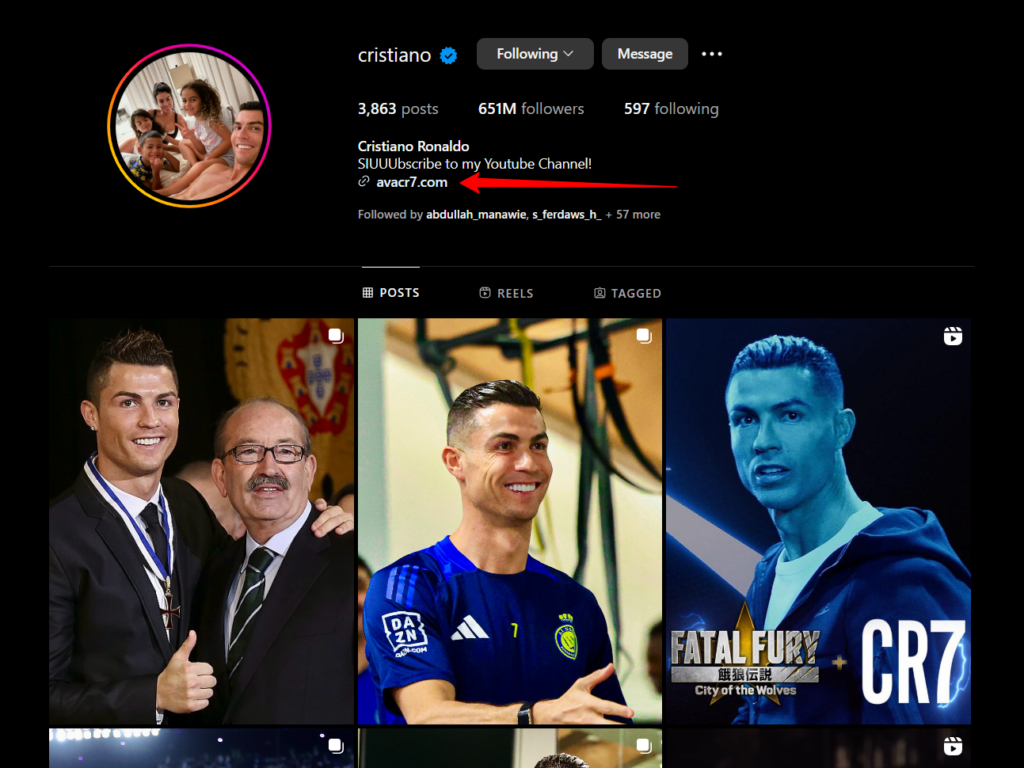
7. Supports Link Retargeting for Ads and Funnels
Retargeting is where URL shorteners move from helpful to powerful.
Some tools allow you to embed a retargeting pixel in your short link. That means you can:
- Show ads to users who clicked the link
- Retarget on platforms like Facebook, Instagram, or Google Ads
- Build custom audiences for future campaigns
Even if the content you’re sharing isn’t your own (e.g., a blog post, YouTube video, or review), you can still collect retargeting data.
It’s one of the smartest ways to expand your ad reach without extra tracking setup.
8. Works Across Platforms: SMS, WhatsApp, Email, and More
One of the underrated strengths of a URL shortener is its platform flexibility.
Whether you’re sending links via text message, WhatsApp broadcast, Telegram, email campaigns, or even in customer support chats, short URLs work seamlessly.
Why it matters:
- Long URLs often get cut off or misformatted in messaging apps.
- SMS has character limits, so every character counts.
- In email footers or call-to-actions, shorter links look more professional.
For example, if you’re running a limited-time offer via SMS, a short URL like allmylink.me/deal50 fits perfectly and looks clean.
Short links also make WhatsApp group invites, support ticket replies, or customer service prompts faster to send and easier to act on.
Bonus: Platforms like Linko allow campaign tagging, so you can group and compare traffic from each channel in one dashboard.
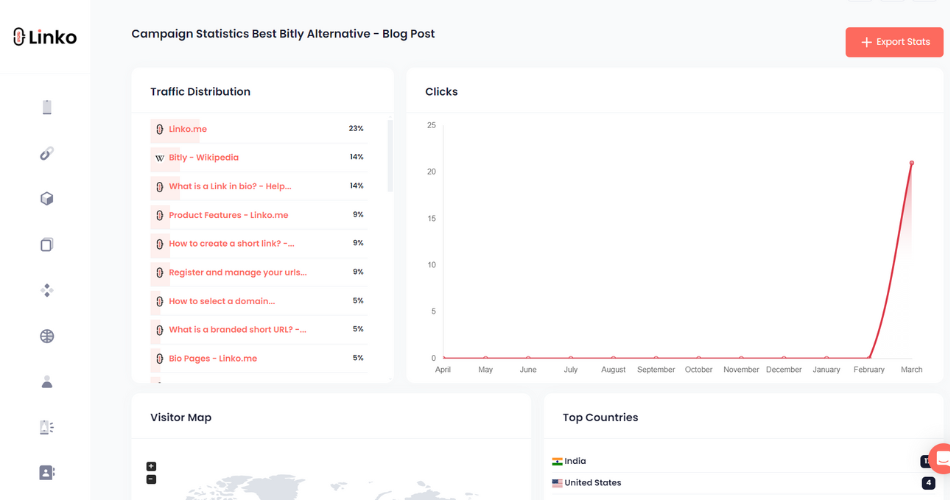
9. Enables QR Code Generation for Offline Marketing
Short URLs and QR codes go hand-in-hand.
If you’re doing offline marketing, flyers, posters, packaging, business cards, and menus, adding a scannable code linked to a short URL is a smart move.
Why QR with short links?
- Long URLs result in dense, hard-to-scan QR codes.
- Short links generate simple and fast-scanning codes.
- Branded short links create trustworthy-looking QR codes.
Real-world examples:
- Restaurants use short links in QR codes for digital menus.
- Event promoters use short URLs on posters for ticket links.
- Product packaging includes QR codes for warranty registration, how-to videos, or review pages.
With Linko, every short link automatically includes a downloadable QR code, no extra tool required.
You can even customize the QR code’s color and shape to match your brand, turning a basic print asset into a clickable digital experience.
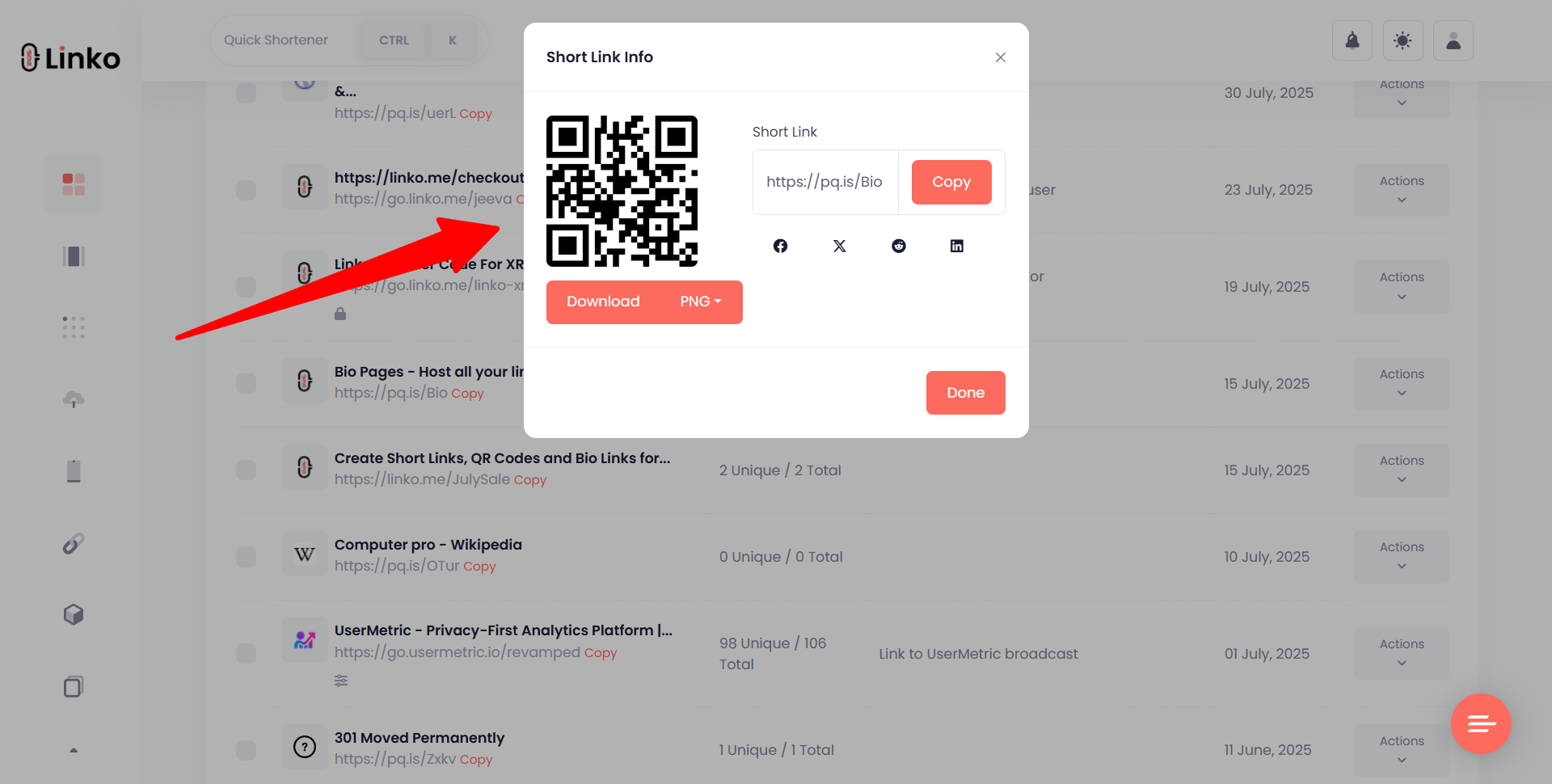
10. Organizes and Manages Links from One Dashboard
If you’re sharing multiple links across multiple platforms, things can get messy fast. Spreadsheets, bookmarks, and browser tabs just don’t cut it.
URL shorteners with link management features solve this problem by giving you:
- A searchable, filterable link dashboard
- Grouping links by channels, campaigns, or clients
- Options to edit, pause, or redirect links anytime
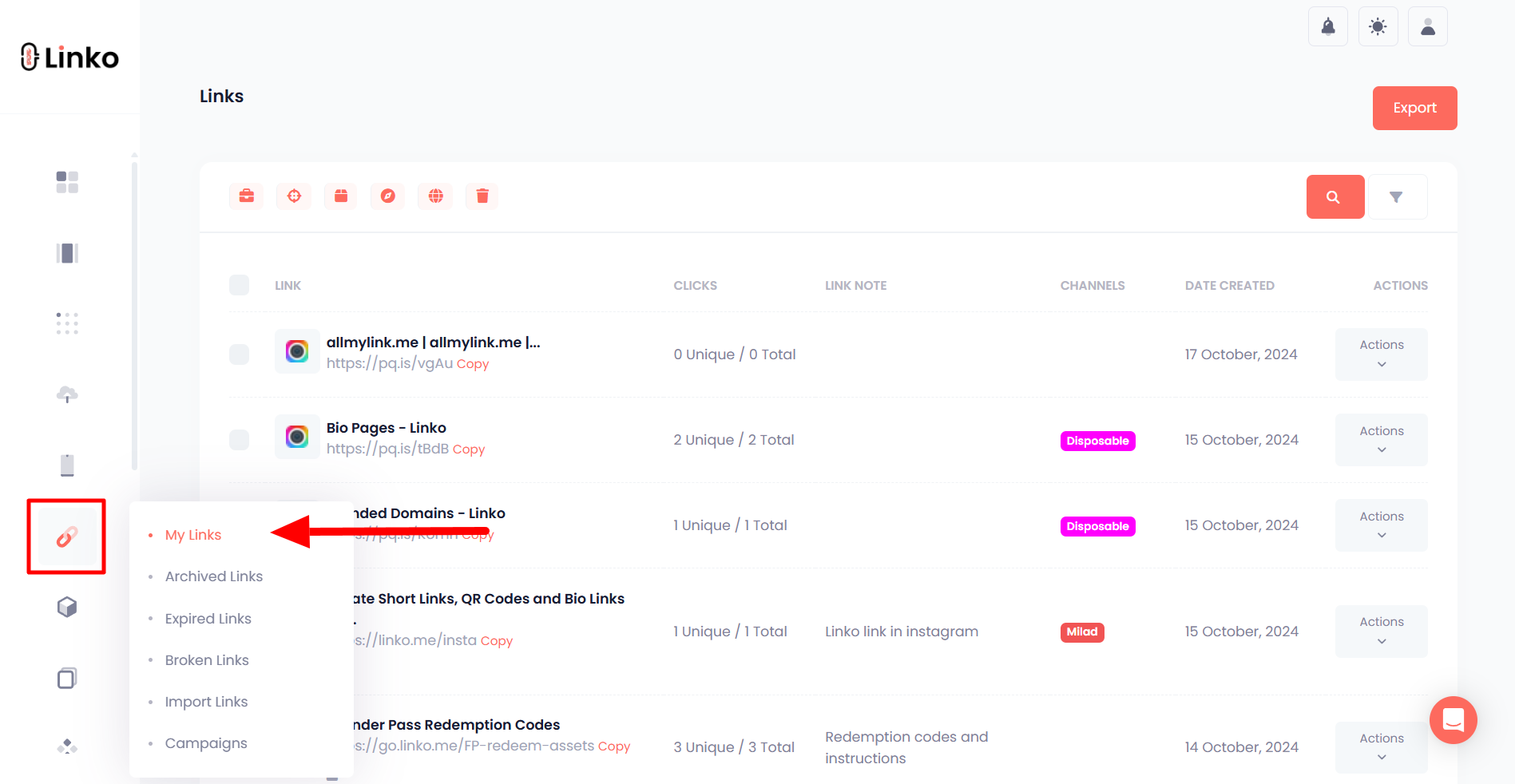
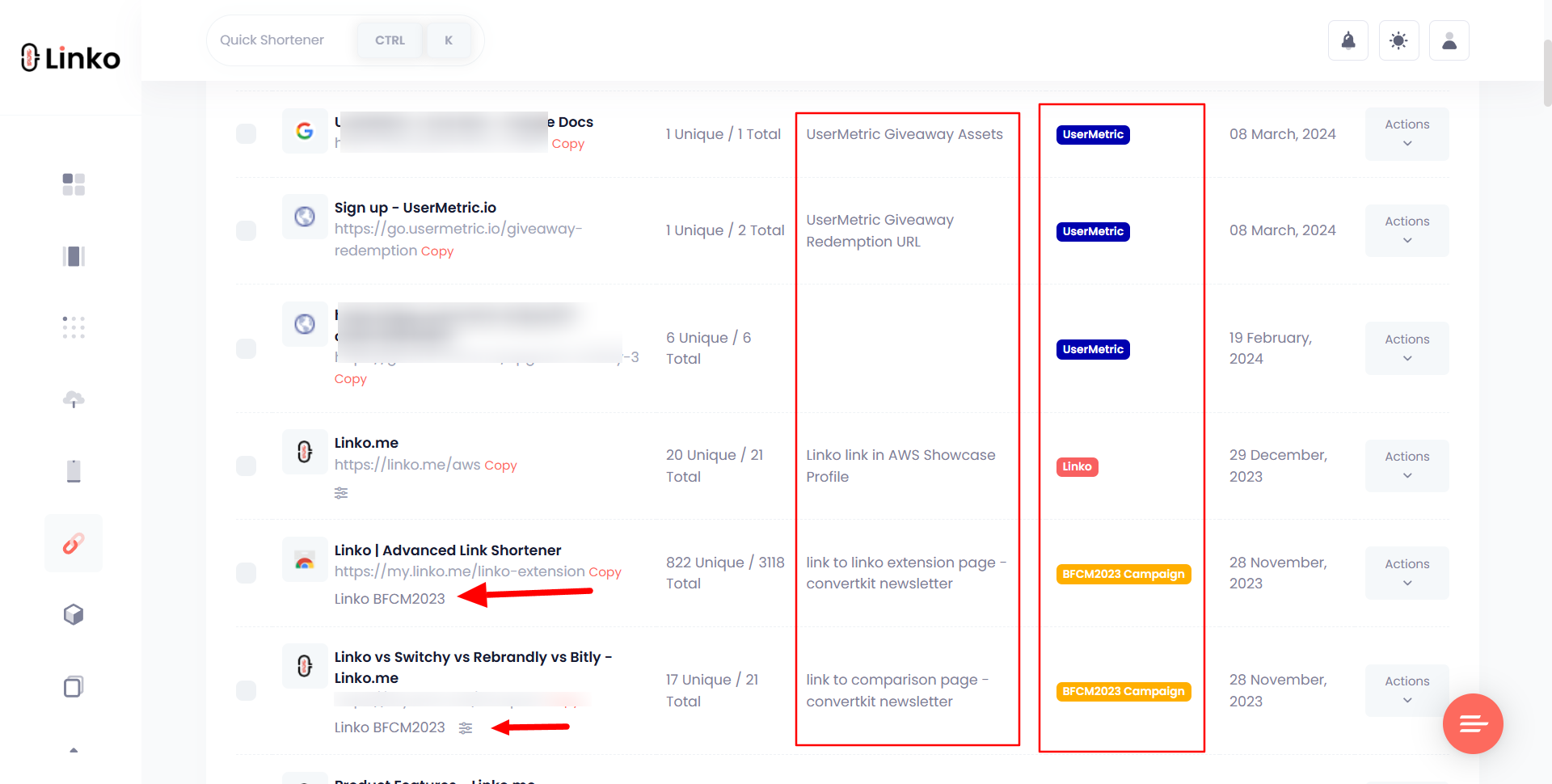
With tools like Linko, you can:
- Bulk shorten links
- Sort them by performance
- Add notes, tags, and campaign names
- Schedule links to go live or expire at specific times
This turns your short links into manageable digital assets, not just throwaway URLs. Especially useful for agencies, content teams, and affiliate marketers juggling dozens of links at once.
URL Shorteners vs Direct Links: What’s the Difference?
While both lead to the same destination, short URLs and direct (long) links serve very different purposes, especially when you’re running marketing campaigns or sharing content across platforms.
Let’s break down how they compare.
Length, Clarity, and Professional Appearance
Direct links are often cluttered with long paths, product IDs, session tags, and UTM parameters. They’re fine for internal use, but look messy when shared in public-facing channels.
Compare these:
Direct: https://store.example.com/collections/new-arrivals/shoes/men?utm_source=twitter&utm_campaign=sale2025
Shortened: linko.me/shoesale
Which one would you rather put in a tweet, add in an email, or share in a podcast?
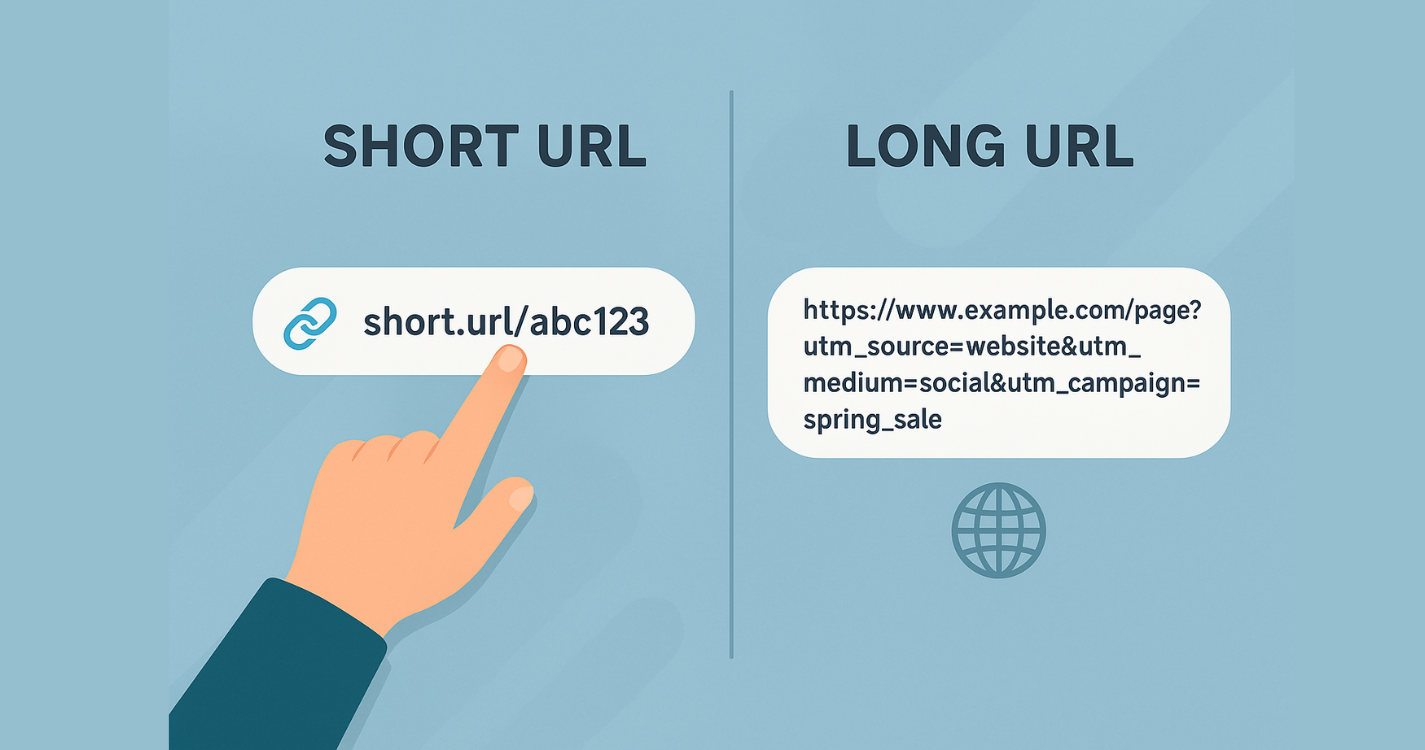
Short links:
- Look more professional
- Take up less space
- Are easier to remember and type
They’re also more visually appealing in bios, emails, YouTube descriptions, and SMS campaigns.
How to Choose the Right URL Shortener for Your Needs
There are dozens of tools out there, but not all URL shorteners offer the same features. Here’s how to pick one that fits your goals.
Features to Look For
Look for a tool that gives you:
- Custom branded domains
- Link analytics and reports
- QR code generation
- Bulk link shortening
- Campaign and channel grouping
- UTM builder or support
- Redirection and link editing
- Team access or client portals
- API access for automation
These features go beyond just shortening links, they turn your URLs into trackable assets that improve every part of your marketing strategy.
Free vs Paid Tools
Free tools like Bitly (free tier) are good for basic link shortening, but they often come with limitations:
- No branded domains
- Limited analytics
- Caps on the number of links
Paid tools like Linko offer more:
- Branded short domains
- Deeper analytics
- Unlimited or bulk shortening
- Multiple users or projects
If you’re serious about marketing, investing in a paid tool gives you more control, credibility, and data.
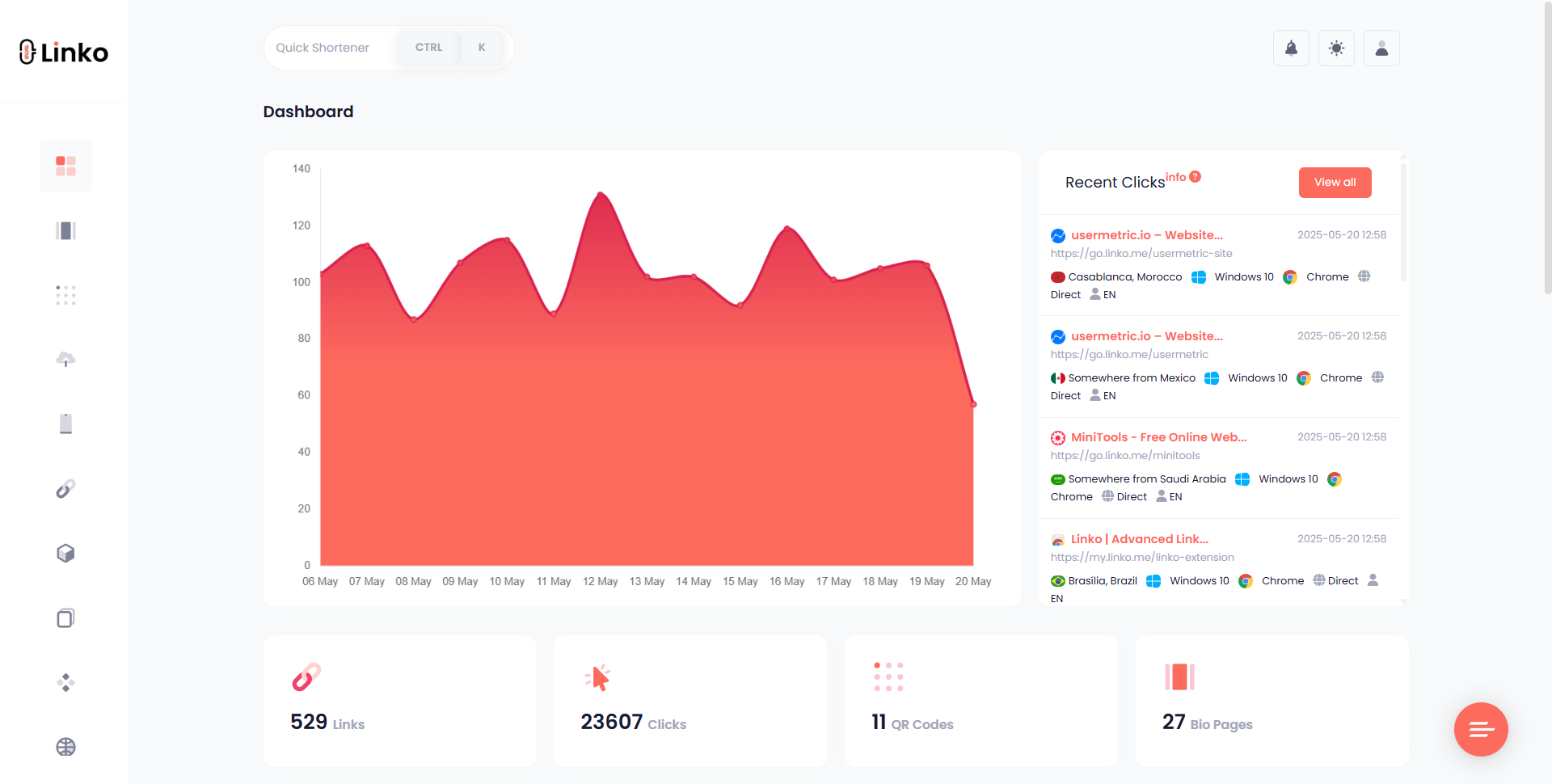
Self-Hosted vs SaaS Options
You have two main choices:
- SaaS platforms (like Linko) – Easy to set up, always updated, scalable, and comes with support.
- Self-hosted shorteners – Gives full control and ownership but requires hosting, technical setup, and maintenance.
Unless you’re running a development team or need custom integrations, most marketers prefer SaaS tools for their ease of use and flexibility.
Linko: A Powerful URL Shortener for Modern Marketers
If you want more than just a short link, Linko gives you a full toolkit built for today’s digital landscape.
Here’s what makes Linko stand out:
- ✅ Custom branded domains (e.g.,
go.yourbrand.com) - ✅ Supports non-English slugs, perfect for global campaigns
- ✅ Automatic QR codes for every link
- ✅ Bulk link shortening and bulk QR generation
- ✅ Bio page builder with 41 widgets and 40+ social icons
- ✅ RSS CTA Feeds to auto-update your link-in-bio pages
- ✅ Campaign, channel, and team-level link organization
- ✅ Client portal for managing links across accounts
- ✅ API support to integrate with your marketing tools
Whether you’re sharing affiliate links, pushing SMS campaigns, managing influencer bios, or tracking offline ads via QR codes, Linko lets you do it all in one place.
You can get started for free with up to 50 links, and then scale up with premium plans when your campaigns grow.
Final Thoughts
Yes, more than ever.
As marketing shifts toward mobile, multichannel, and micro-content strategies, short URLs have become essential tools, not optional hacks.
Whether you’re looking to:
- Clean up your Instagram bio
- Track performance across ads
- Manage bulk campaign links
- Add QR codes to print or packaging
- Improve trust with branded URLs
…a smart URL shortener tool like Linko can help you get there faster, cleaner, and smarter.
Short links may be small, but they do heavy lifting.
FAQs
Do short links hurt SEO?
No. Short URLs use 301 redirects, which preserve SEO value and pass link juice. They don’t hurt rankings if used properly.
Can I use URL shorteners on Instagram or YouTube?
Yes. They’re perfect for bio links, video descriptions, and comments. Linko also offers bio pages to combine multiple links into one.
What’s a branded link?
A branded link uses your domain (e.g., go.yourbrand.com/deal) instead of a generic one like bit.ly. It builds trust and improves click-through rates.
Can I shorten multiple URLs at once?
Yes. Linko supports bulk link shortening with or without CSV files. Ideal for affiliate marketers, agencies, and e-commerce stores.
How are QR codes connected to short links?
Each short link in Linko comes with a ready-to-use QR code. You can customize it and use it in offline materials to drive traffic online.
Are short URLs secure?
Yes. Reputable tools like Linko offer HTTPS-secured links, and you can disable or redirect them anytime from your dashboard.
Can I track traffic sources with a URL shortener?
Absolutely. Shorteners like Linko offer detailed analytics and allow you to add UTM parameters for deeper tracking.

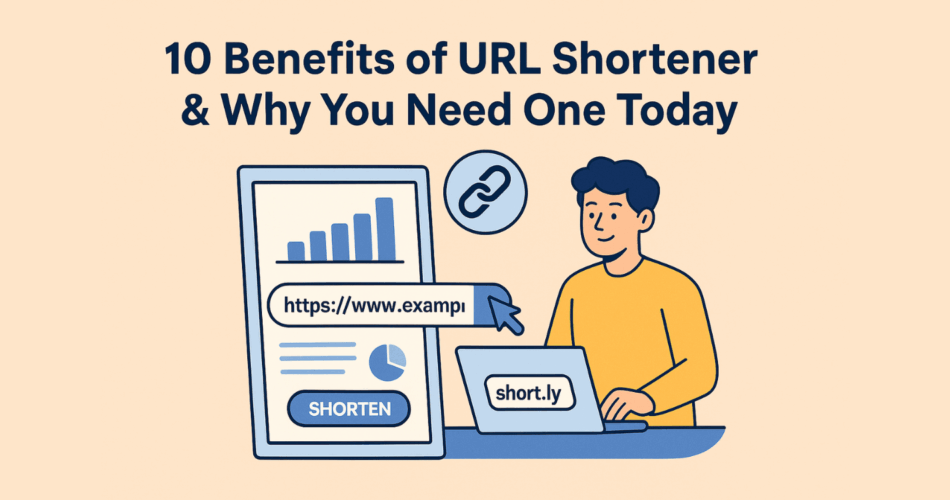
Comments